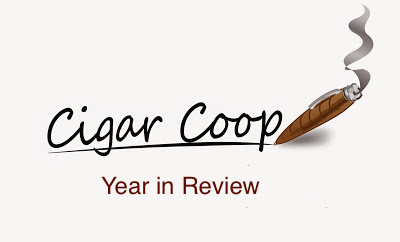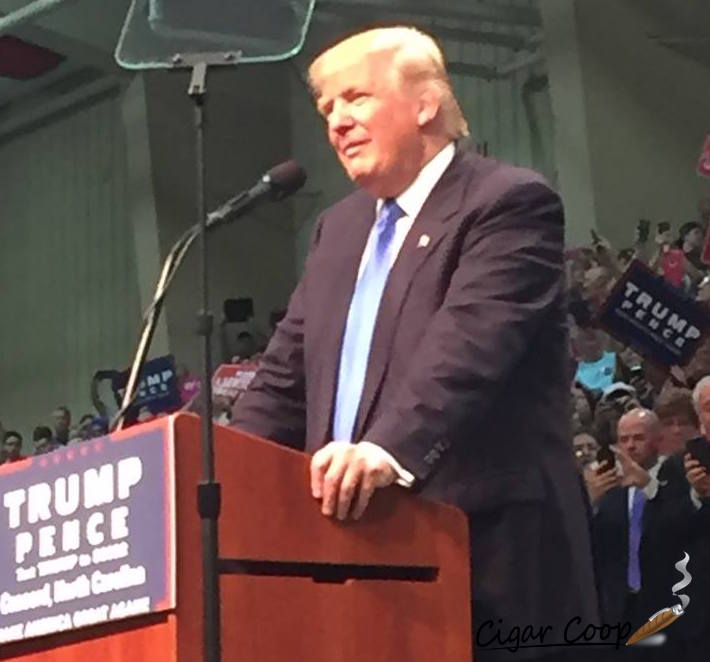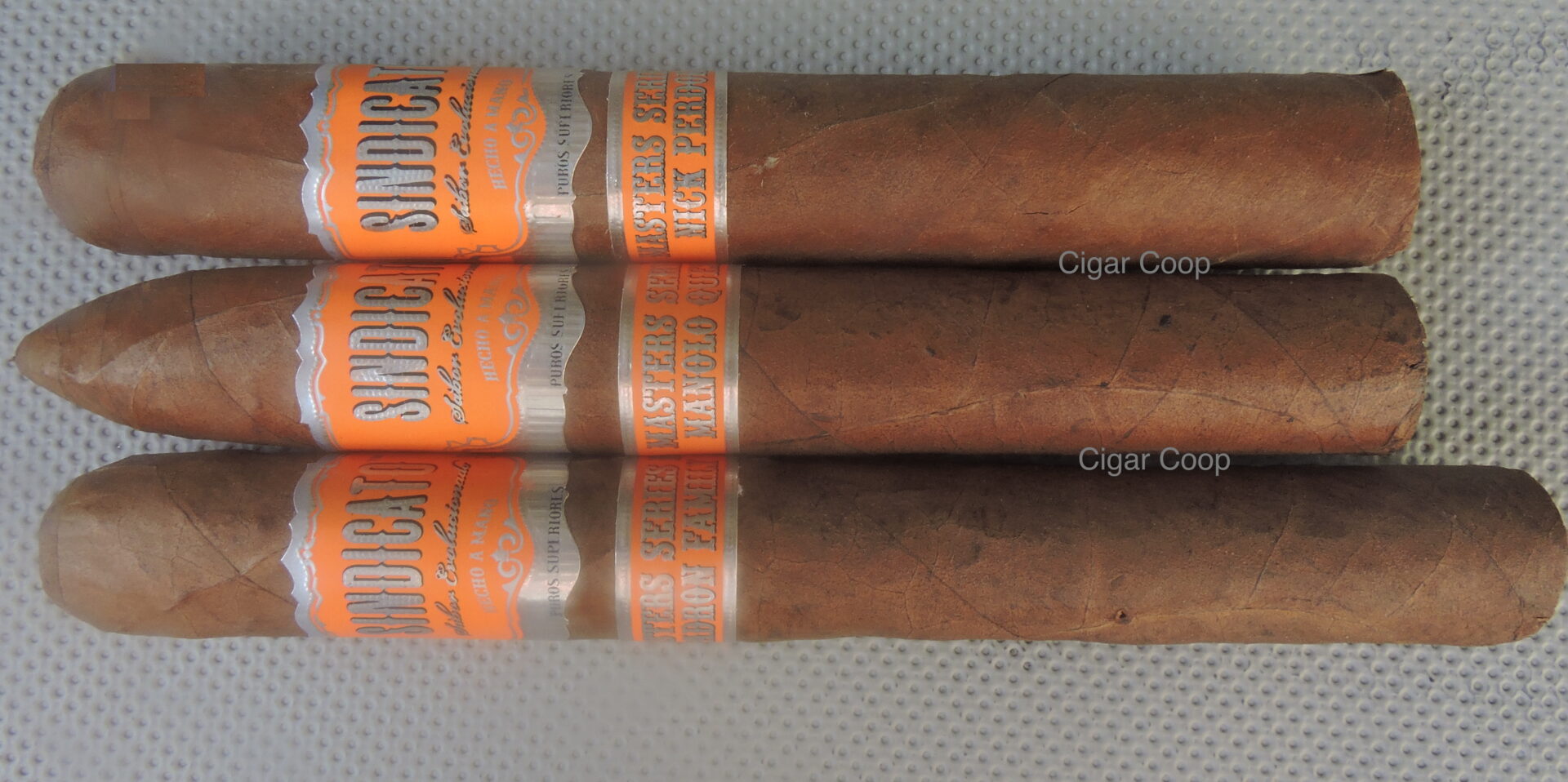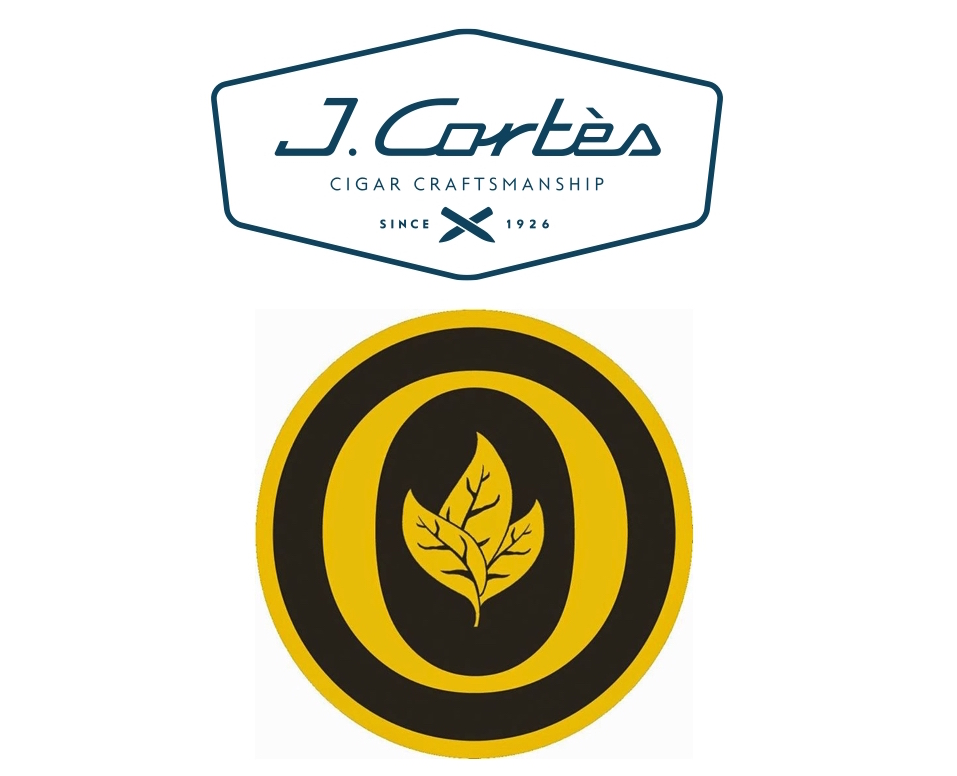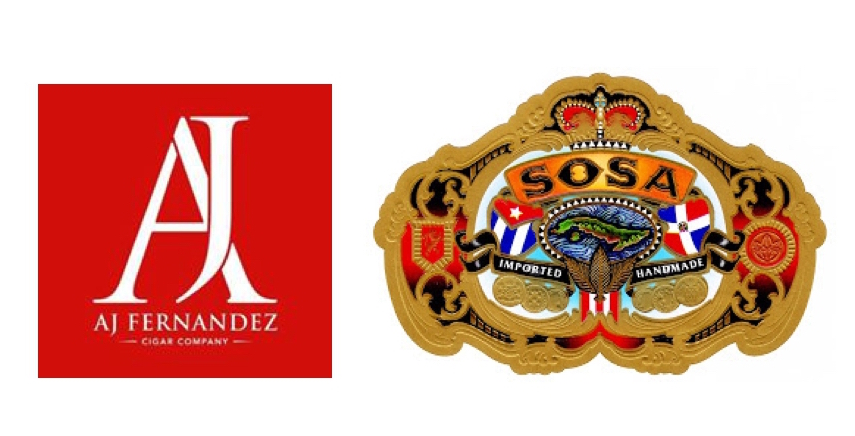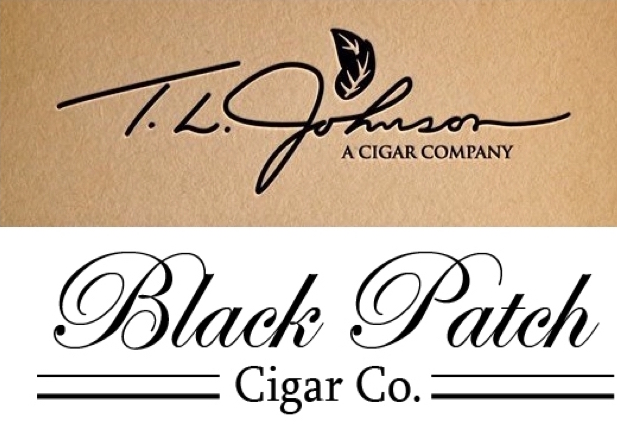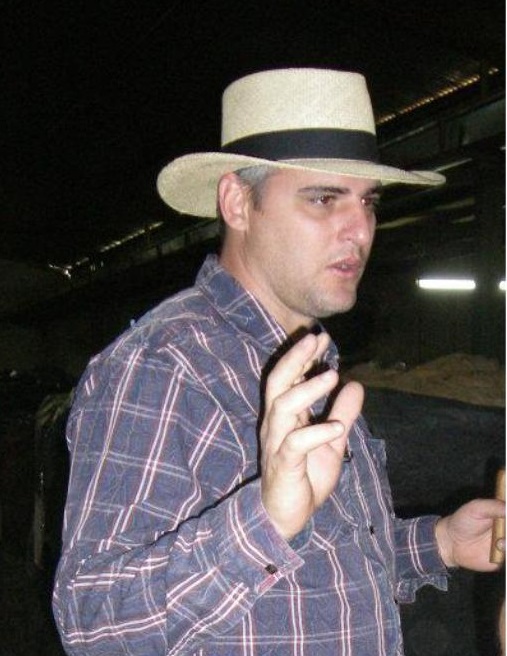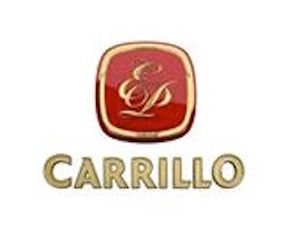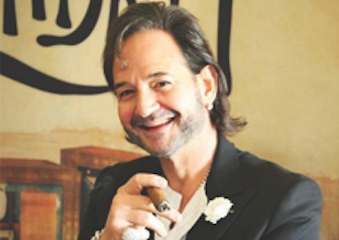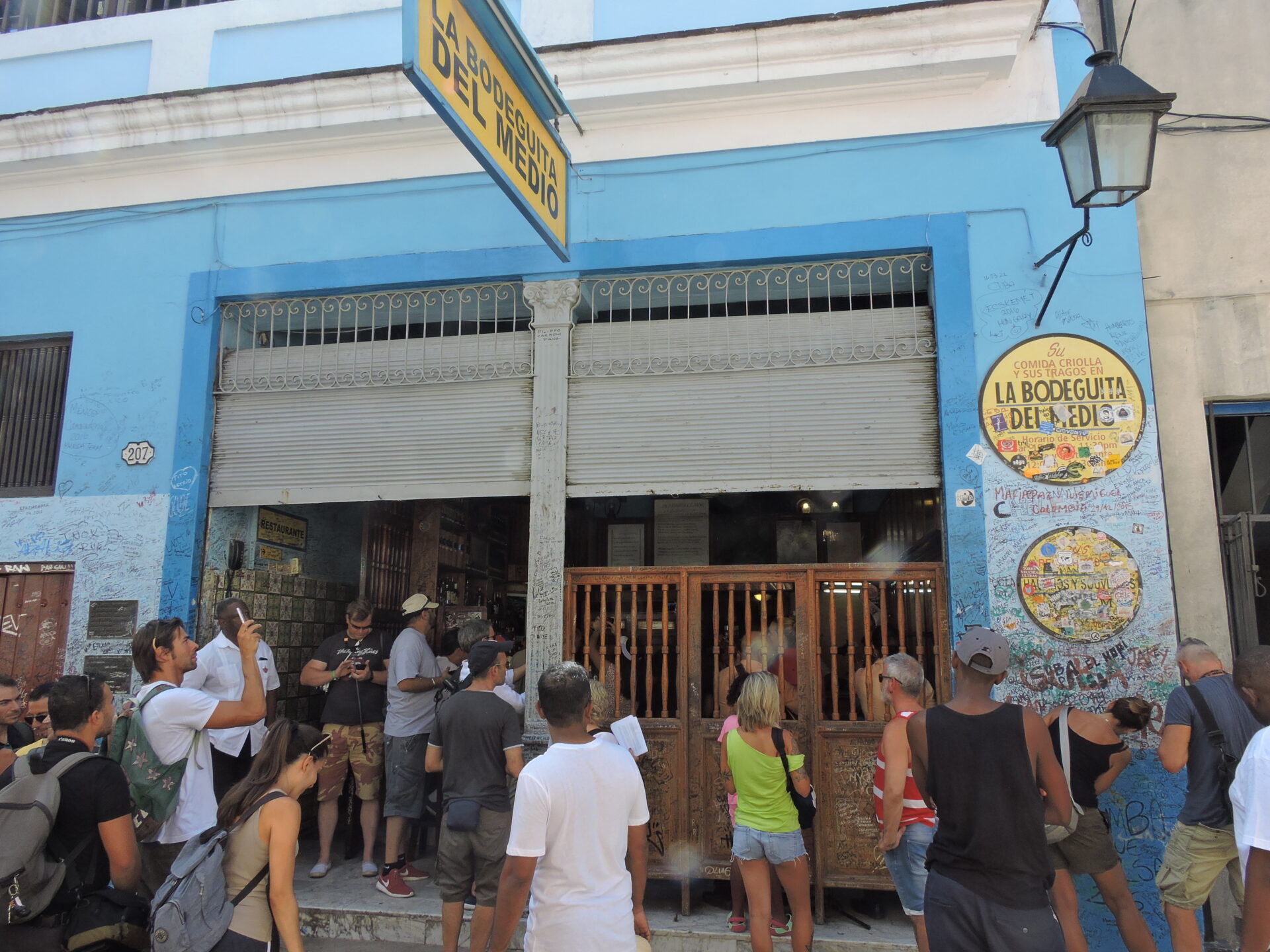For the sixth consecutive year, we bring you our selections and analysis for the Top 12 cigar industry news stories and themes for the year. Unlike how we consider cigars for our Cigar of the Year Countdown, these news story selections are based on the actual calendar year for 2016.
These stories are individual stories or ones that are multi-faceted. Some even overlap. Most importantly, they are the ones that had the greatest impact on the cigar industry as a whole.
As we have done in the past, we are grouping the Top 12 into three categories. These categories are slightly different than previous years. The stories listed in each category are not ranked in any particular order.
- The FDA – there are several stories this year that fell into the category of “FDA” regulation
- The Industry – we look at significant stories that happened with different companies
- Miscellaneous – anything that did not fit into other categories
This year, for the first time I will provide some editorial thoughts on each of the twelve stories.
The FDA
1-The Cigar Industry is Now Regulated
[themify_box style=”light-yellow” ]
- FDA Regulations Come Down Hard on the Cigar Industry
- No Exemption Given to Premium Cigars
- More questions than answers exist on the regulations
[/themify_box]
There are two dates cigar enthusiasts will long remember – May 5, 2016 and August 8, 2016. May 5th is the date where the U.S. Food and Drug Administration (FDA) announced the regulations that tobacco products, including premium cigars would be subject to. The August 8th, 2016 is the date the initial set of regulations went into effect.
The May 5th date sent shockwaves to the industry. Prior to that date, the industry was optimistic on a proposed “Option 2” that would give premium cigars an exemption. This did not happen. As we discussed, this was most likely never something that was seriously considered.
Many took to social media to lash out anger at the FDA.
The regulations have begun to go into effect on August 8th. Current regulations the cigar industry is now subject to include: user fees, age requirements, and a ban on free samples. Warning labels and FDA approval of products (via Substantial Equivalence) is still pending, but will take effect over the next 12 to 18 months. For many of these requirements, there are more questions than answers – especially when it comes to costs.
Since the regulations have been announced, there have been two grace periods that essentially extended due dates on required information by the FDA. First, a six month grace period has been enacted for the registration and listing of product information by companies, thus moving the date to June 30, 2017 from December 31, 2016. Second, the deadline the ingredient list for products has been given a six month grace period with the new dates being August 8, 2017 and February 8, 2018 for small scale manufacturers. The grace period means the FDA will not enact enforcement on this items until the new deadlines are hit. Industry insiders believe these grace periods have been enacted in anticipation of a large volume of submissions by tobacco companies.
[themify_box style=”light-green” ]
Editor’s Comments
While this might be a painful thing to hear, the cigar industry is now regulated – and it’s going to take a lot to undo it. The industry must now turn its attention to adjusting to life in the regulated world, and hopefully mitigate some of the impacts.
The ambiguity that exists in the regulations has led to the spread of mis-information. This isn’t something just from the cigar media end, but from everyday users of social media. It’s a shared responsibility among everyone to report what’s accurate.
[/themify_box]
2-The Cigar Industry Responds to the Regulations
[themify_box style=”light-yellow” ]
- The three Trade Associations pledge unity in challenging the FDA Regulations
- Three pronged approach: Legislative, Judicial (Lawsuit), and Direct Meetings with FDA
- Industry Comes Under Criticism for Perceived Slow Response
[/themify_box]
While there was a backlash against the FDA on the regulations that were imposed on the cigar industry, one can argue there was also a backlash on the cigar industry trade associations (Cigar Association of America – CAA, Cigar Rights of America – CRA, and the International Premium Cigar and Pipe Retailers Association-IPCPR). The backlash was over what was perceived to be a slow response to the FDA.
Most of the backlash came from smaller manufacturers, consumers, and small brick and mortar retailers. When Nicapure Labs LLC, a vaping company filed a lawsuit against the FDA less than a week after the regulations were announced, many wondered where the response was from the cigar industry.
The cigar industry asked for patience. A May 27th, letter from the three trade associations pledged unity in countering the regulations. At the same time, the associations asked that a single response to the FDA be made and that no independent action be taken. The associations requested patience as a strategy was being finalized.
Unfortunately, that did little to quell the outcry for a quick response. Less than a week later, Enrique Sanchez Icaza of Global Premium Cigars announced he was spearheading an independent legal challenge along with Jim Robinson of Leaf Cigars and Luis Falto of Falto Cigars. The action by the trio was widely heralded by the critics.
Following an industry summit hosted by Cigar Rights of America, a roundtable discussion was held with members of the cigar industry and broadcasted on the Cigar Dave Show. On that show, a three-pronged strategy was discussed – including: 1) Legal Action; 2) Legislative Action; and 3) Direct Negotiation with the FDA. This roundtable was significant as it was the first time industry personnel faced the media
It was on July 15th, 2016 when the three trade associations filed the lawsuit against the FDA. Oral arguments are currently scheduled for July 28, 2017.
The legislative efforts have proven to be challenging. An attempt to tie an exemption to the Appropriations Bill (that would have cut off funding for the regulations) was overriden by the implementation of a Continuing Resolution. The bills in Congress calling for premium cigars have created awareness, but have also not advanced.
We will discuss direct negotiation with the FDA in the Section #3.
[themify_box style=”light-green” ]
Editor’s Comments
Whether the cigar industry trade associations were prepared with a counterattack or not is something I do not know. Much of the comments I got from the trade association members is that they could not craft a counter-attack without knowing what the regulations are. I can understand and appreciate that. I also get not tipping your hat to what the counter-strategy will be. What I will say is that when it came to communications to consumers, retailers, and smaller manufacturers – it was sorely lacking.
The Cigar Dave Roundtable was excellent. In an age where we have Facebook Live and YouTube Live, that should have been blasted out to the masses. At a minimum, the trade associations should have send the roundtable recording to its members. While I don’t begrudge another media source having an exclusive, the cigar industry really blew it big-time when they had an opportunity to deliver the content at that roundtable to the masses.
In terms of communications, it should be noted that IPCPR has greatly improved its communications in the last few months. It just now needs to go to the next level leveraging more of the real-time tools out there. While this is a step in the right direction, I ultimately feel stronger public relations with mainstream media is needed. Also props to J.C. Newman for broadcasting Marco Rubio’s factory visit – and RoMa Craft Tobac and Tuesday Night Cigar Club for broadcasting a Q&A with attorney Frank Herrera.
Tying an exemption to the Appropriations Bill has proven to be a complicated process. This is because Appropriations covers many more things besides cigars. If there is one takeaway from the implementation of the Continuing Resolution is that the Appropriations process is a longshot. Meanwhile, the lawsuit is going to be a long and winding road as well and ultimately costs will become an issue if it isn’t already.
[/themify_box]
3-The New Administration
[themify_box style=”light-yellow” ]
- New President Pledges to Reduce Regulations
- Industry Hopes new Administration is more Sympathetic in battle against regulations
- Questions on road ahead with Cuba
[/themify_box]
The cigar industry has become full of optimism with the election of Donald Trump as the 45th President of the United States.
The change in political party in the White House from Democrat to Republican is one thing that is fueling the optimism. It was the 2009 Family Smoking Prevention and Tobacco Act that gave the FDA authority over premium cigars. This was signed into law by President Barack Obama, a Democrat. Obama, has also been associated by many with implementing many federal regulations under his presidency. Ultimately, it is President Obama who is looked upon as the one who handed the FDA power of the cigar industry.
President-elect Trump has pledged tor reduce regulations. In his “Contract with the American Voter”, Trump pledged that for any regulation created, there must be two regulations eliminated. The House Freedom Caucus has also recommended the FDA Deeming Rules on Cigars be Revoked.
The nomination of Congressman Tom Price as Secretary Health and Human Services has also fueled optimism. Price has supported the exemption bills in Congress in the past. In addition, Vice President Mike Pence is seen as optimistic as he supported the exemption bill in Congress. In 2015 as Governor of Indiana, he signed Senate Bill 463 into law that ammends the Indiana State Clean Air Act that allowed for the establishment of new cigar bars.
The new incoming Administration has said it will take a different approach with Cuba (see #12 for details on that)
[themify_box style=”light-green” ]
Editor’s Comments
I would be remiss if I didn’t mention the optimism around the name Rudy Giuliani. After he mentioned the cigar industry on Fox, he was somehow anointed the savior of the cigar industry – something I felt was way off-base. This seems more like a smokescreen that organically grew. As it has played out, Giuliani is going to be a non-factor in the administration, and will be a non-factor for the cigar industry.
Perhaps the cigar industry will have a kinder executive branch under the Trump Administration, but sadly I don’t anticipate a lot happening. However, when it comes to the scenario of the cigar industry getting into direct negotiations with the FDA, this could be something worth watching. A lot is going to depend who becomes the new FDA Commissioner. If these direct negotiations happen, it is worth watching where the lawsuit heads. Particularly if headway is made with these negotiations, a scenario could emerge where the lawsuit is dropped. Right now, it’s too early to tell.
In order to create awareness with Trump and his Administration, I do expect a new petition to the White House in 2017. In order for this petition to succeed, it’s going to require a grass roots person to person effort that extends well beyond a bunch of people on Facebook saying “Sign this Petition”.
[/themify_box]
4-Stealth Products
[themify_box style=”light-yellow” ]
- Cigar Industry Scrambles to beat August 8th Deadline in Getting Products to market
- Some Products Show up with virtually no marketing
[/themify_box]
One offshoot of the FDA Regulations going into effect on August 8, 2016 has been the rise in Stealth Cigar Products.
We defined a “stealth product” as a cigar that has had virtually no marketing and for the most part have been sight unseen before arriving at a retail cigar establishment. While doing this is not an entirely new concept to the cigar industry, this past summer there was an uptick of these products that showed up at retailers around the country.
The reason for stealth products is that there is a window that extends to February 7, 2018 (assuming Substantial Equivalence is the rout). This window is where cigar manufacturers and brand owners have can apply for FDA approval for products that are not grandfathered from regulation (February 15, 2007) but released before the August 8th date. Therefore, there was a rush of products released before August 8th. and many of these were stealth products.
There is one common thread about the recent swarm of these stealth products: they were sold, invoiced, and shipped to retailers all before August 8th, 2016 – the date when the Deeming Regulations took effect. Any cigar released from August 8th and beyond must get regulatory approval from the FDA.
Many cigar manufacturers have told us that they feel this approach gives a cigar manufacturer or brand to “showcase” a new cigar in the future – such as the 2017 IPCPR Trade Show. It’s seems as though the plan was to comply with the FDA by August 8th, and then “at the right time”, officially launch the product and be more open about it.
[themify_box style=”light-green” ]
Editor’s Comments
I’ve been vocal on this. This is a not a good road the cigar industry is heading down. Any time a consumer is not educated on a product, it is not a good thing. The fact that products like this have been showing up does not help manufacturers or brands. I’m old school and still feel you invest in more traditional marketing (i.e. using press releases and not relying on Instagram). There is already too much product in the marketplace and companies have to make their product standout.
Time is also ticking away. February 7, 2018 is the last date to apply for Substantial Equivalence. If the approval is not granted, there is another year the product can be sold at a retailer. To me, the waiting game to showcase this product is a risky one. Even if some extensions are granted, this is still a risk. Each day that passes shortens the window a product can be marketed. As this time passes, I can’t see retailers bringing in the products released as stealth product.
Also, I’m wondering once FDA enforcement starts whether the products released as stealth products will have an increased scrutiny. It’s going to be very important manufacturers and retailers have their paperwork in order. This is something worth watching in the next 12 to 24 months.
[/themify_box]
5-The Troops and Cigar Donations
[themify_box style=”light-yellow” ]
- FDA Clarifies Ban on Samples by Manufacturers Applies to Deployed Droops.
- Ambiguity on the FDA ban on Manufacturer Donations to Troops took five months to confirm
- Mainstream Media Picks Up on Story
[/themify_box]
The new FDA ban on free samples soon raised a question on whether or not cigar companies could continue to make cigar donations to military troops deployed overseas. After some debate and ambiguity, the FDA clarified its position and said that such donations are no longer allowed.
Initially, there was a question. While some interpreted the samples ban as applying to the troops, others did not – including IPCPR’s counsel (for those who think there was never a question, I suggest listening to the comments at the 43:34 mark direct from this year’s IPCPR FDA seminar).
This led to mainstream media picking up the story. Eventually, Congressman Duncan Hunter wrote a letter to the FDA and asked them to clarify the position on donations to the troops. The answer came back as a “no”. It turns out there is language that explicitly bans charitable contributions of tobacco products in the big Federal Food and Drug Cosmetic Act (Prohibitions are listed and on 21 CFR Section 331 line rr where it is documented that there is a ban charitable contributions of tobacco products).
Meanwhile Congresswoman Kathy Castor introduced a bill to Congress calling for an exemption that would allow cigar donations by manufacturers to continue. While this bill has not gained much traction and will have to be re-introduced with the 115th Congress in 2017 (and get a much bigger push).
Cigars for Warriors has reported that donations they have received are down.
While this was not good news for the cigar industry or military personnel, this did get the attention of mainstream media of the impacts of FDA regulation of premium cigars. Whether this translates into any sort of a positive remains to be seen.
[themify_box style=”light-green” ]
Editor’s Comments
The question of the troops should have been put to bed back in May – instead of allowed to fester for five months. The answer was out there all along in the Federal Food and Drug Cosmetic Act.
The mainstream media picking this story up still put some light on the impacts the FDA regulations will have on the industry. I guess you can say that’s a silver lining. However, it amplifies the need that the cigar industry needs to invest more in public relations so they can capitalize on this.
One final note. The industry lawsuits have not challenged the regulations on free samples. While I understand the industry did not want to go “too wide” in terms of the lawsuit, I think they made a big mistake not challenging the ban on samples. Ultimately if samples are allowed, the issue with the troops could be resolved. However, I think there is a bigger issue at play here – samples have been an important part how the industry operates. In the end, I think the industry has been much better off with free sampling allowed.
[/themify_box]
The Industry
6-The Acquisitions
[themify_box style=”light-yellow” ]
- J. Cortès Acquires Oliva Cigars
- A.J. Fernandez Cigars Acquires Brands of Sosa Cigars
- T.L. Johnson Cigar Company and Black Patch Cigar Company Merge
[/themify_box]
The cigar industry saw two significant acquisitions in 2016. While the new FDA Regulations were not specified in either scenario, it is probably a fair assumption to say that that these regulations led to the decisions of why these acquisitions took place.
Prior to the 2016 IPCPR Trade Show, it was announced that J. Cortès NV, a cigar company based in Belgium acquired Oliva Cigar Company – lock, stock, and barrel. J. Cortès is a large family-owned tobacco company primarily engaged in machine made and cigarillo products in the European market. The company also had a small amount of premium hand-made cigars in their portfolio. The acquisition of Oliva gave J. Cortès a full-blown premium hand-made cigar brand, a factory in Tabacalera Oliva, and a full sales force in the U.S. market. As a part of the acquisition, Jose and Gilberto Oliva are staying on-board for the time being. Basically J. Cortès got a self-sufficient operation for premium cigars.
The other acquisition of significance was the acquisition of the brands of Sosa Cigars by A.J. Fernandez Cigars. In addition to acquiring these brands, production of these cigars is now being shifted to A.J. Fernandez’s factories in Nicaragua. This acquisition gave A.J. Fernandez a group of FDA predicate (grandfathered) products in its portfolio. Unlike the J. Cortès acquisition which was a full acquisition of the Oliva Cigar Company, it is only the brands that are moving over and does not include the sales force or any other physical assets.
Toward the end of the year, it was also announced that T.L. Johnson Cigar Company and Black Patch Cigar Company were merging. T.L. Johnson is a vertically integrated operation based in Colorado and the Dominican Republic. In addition to its own brands, the company has its own factory, distribution arm as well as a growing and leaf brokerage operation. Black Patch Cigar Company owns farms in Kentucky and the Dominican Republic and makes the Kenbano line of cigars.
[themify_box style=”light-green” ]
Editor’s Comments
What we are seeing are three types of acquisitions in the cigar business. There are those acquisitions where a company wants to acquire a core competency (J. Cortès-Oliva; Swisher-Drew Estate). The second is a company looking to acquire brands because they are grandfathered (A.J. Fernandez-Sosa, General-Torano). The third are smaller companies merging operations (T.L. Johnson-Black Patch). It’s ironic we saw one of each of these in 2016. I believe these three types are the blueprint going forward.
If you look at home regulations have impacted other industries, it leads to consolidation. Look at the airline, financial, pharmaceutical and cigarette industries. More acquisitions are coming and expect this to be a trend for the next decade. To try to guess what those acquisitions are would be truly a speculating game.
[/themify_box]
7-AJ Fernandez Cigars
[themify_box style=”light-yellow” ]
- A.J. Fernandez Cigars Establishes New Distribution Operations in U.S.
- A.J. Fernandez Collaborates on Blends for Leading Cigar Brands
- A.J. Fernandez Cigars Opens New Factory
- A.J. Fernandez Cigars Acquires Sosa Cigar Brands and La Gran Llave distribution
[/themify_box]
In 2015, Cigar Coop named A.J. Fernandez our “Person of the Year” for the work he has done revolutionizing the value-priced market. 2016 saw Fernandez and his company have plenty of activity from both production and distribution standpoint.
Following the departure of his longtime business associate Kris Kachaturian, Fernandez established a new distribution operation out of Miami. He named his production manager Ricky Somoza his U.S. Director of Operations. Somoza would not last the full year and was replaced by Bernie Rodriguez before 2016 would end.
Meanwhile many industry names – big and small would start to collaborate on projects with Fernandez. These names included Tabacalera USA, General Cigar Company, La Palina, Foundation Cigar Company, and Boutique Blends. Fernandez would acquire a new factory in Ocotal, Nicaragua. Just this past month, Espinosa Cigars shifted production of most of its 601 brand to that new factory.
Plus as we mentioned above A.J. Fernandez Cigars acquired Sosa Cigars – and is now also distributing La Gran Llave, which is a cigar they were already making.
[themify_box style=”light-green” ]
Editor’s Comments
One can make an argument – A.J. Fernandez could be a frontrunner to repeat as our Person of the Year.
To me, the level of activity from A.J. Fernandez seems calculated and planned. In a time where the industry is now regulated, Fernandez is getting aggressive. He’s taking on more production and more distribution. The activities of the past year seem to be a series intermediate steps with an end goal of getting to the next level. Whether Fernandez gets there on his own or through being acquired remains to be seen.
[/themify_box]
8-Big Retail Operations and Lounges
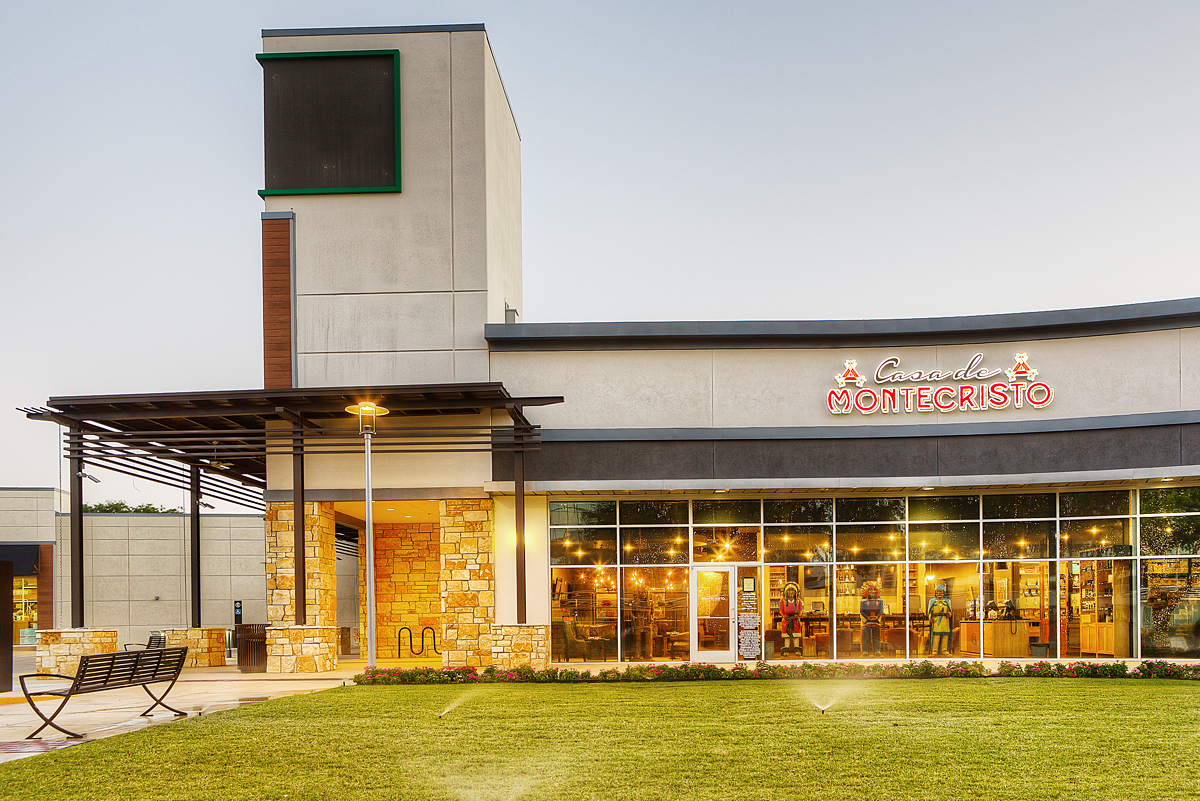
[themify_box style=”light-yellow” ]
- Tabacalera USA Makes Big Moves
- Davidoff Rides Course
- Rocky Patel Planning Lounges
[/themify_box]
The theme involves cigar manufacturers and brand owners expanding into the retail segment. This is not really a new story, but one that seemed to take on new life in 2016.
For the past few years, we have seen Davidoff doing this. Davidoff has been executing a “crop to shop” strategy. From Davidoff’s perspective, the “shop” piece has included partnering with existing retailers to open sponsored lounges to opening Flagship stores – stores owned or partially owned by Davidoff. Davidoff continued to execute on this strategy in 2015. Quietly the company has also started to promote its own online store too.
This year Tabacalera USA, the parent company of Altadis seemed to take some significant steps in this area. Tabacalera USA is also not new in this area as they have owned the JR Cigar retail / online operations for many years. We are now beginning to see Tabacalera USA’s retail operations move under the Casa de Montecristo umbrella. 2016 also saw Tabacalera USA acquire Serious Cigars in Houston, partner with Prime Cigar for a new Casa de Montecristo in Miami Florida, and open a new Casa de Montecristo in Dallas.
Rocky Patel Premium Cigars is also in the process of expanding its the lounge business. It’s using its “Burn by Rocky Patel” lounge concept from Naples, Florida and has already announced plans to lounges in Pittsburgh, Indianapolis, Atlanta, Oklahoma City, Houston, and Nashville.
[themify_box style=”light-green” ]
Editor’s Comments
For some reason Tabacalera USA has come under bigger scrutiny for the moves it has made into the retail segment than Davidoff – and I do find that kind of puzzling. As I said above in #6, a business sector that is regulated is going to breed consolidation. We will see it on the manufacturer part – and we will see it on the retail part. Like it or not, this is just the beginning.
However, I’m curious to see where other companies go in the next few years. Scandinavian Tobacco Group, the parent company to General also is the parent company to Cigars International, which has three retail shops and a huge mail order business. STG has made some reorganization moves that could be positioning itself to expand in a similar manner that Tabacalera USA.
Could Drew Estate (which sponsors a lounge at Corona and at Sunrise Florida’s BB&T Center) and Arturo Fuente (Casa Fuente) be far behind this trend?
Over the past few years, retail operations have established “media” brands as an expansion of their business. Over the years we’ve seen Two Guys Smoke Shop launch “The Cigar Authority”, Smoke Inn launch “Kiss My Ash Radio”, Cigar Federation team up with Delaware Cigars, and Famous Smoke Shop launch “Cigar Advisor”. While each of these have become excellent media outlets in its own right, in the end each is still an arm of a retail operation. The question that is on my mind is how far will Davidoff, Tabacalera USA, STG (et al) be in following the lead of these retailers in expanding into the media space?
[/themify_box]
9-E.P. Carrillo Changes
[themify_box style=”light-yellow” ]
- E.P. Carrillo Does a Massive Overhaul of its Portfolio
- Jose Blanco Joins E.P. Carrillo as Senior Vice President
- E.P. Carrillo pledges to forge ahead in lieu of the new FDA Regulations
[/themify_box]
2016 was a year of change at E.P. Carrillo as the company overhauled its entire portfolio and added a new Senior Vice President in industry veteran, Jose Blanco.
Just about every portion of the E.P. Carrillo portfolio was touched in one way or another. Many new lines were added, some existing lines were re-blended, and all of the existing lines underwent a packaging change. Each blend has been slotted into a different grouping. Prior to the IPCPR Trade Show, we summarized this.
To execute on the restructuring, the company has brought in Jose Blanco to be its Senior Vice President of Sales. Since joining the company this past November, Blanco has been on the road establishing himself as a brand ambassador. This has also filled a void the company has had as owner Ernesto Perez-Carrillo has responsibilities at the company’s Tabacalera La Alianza factory.
In addition Perez-Carrillo reaffirmed his commitment to moving forward despite the FDA regulations.
[themify_box style=”light-green” ]
Editor’s Comments
Last year, I participated in a roundtable discussion on Cigar Jukebox and was asked what company I thought it was “now or never” for. My answer was E.P. Carrillo. No doubt the company responded in 2016 – overhauling its portfolio and bringing Blanco in. 2017 will see the execution of the changes put into play.
[/themify_box]
Miscellaneous
10-Carlos Fuente Senior Passes Away
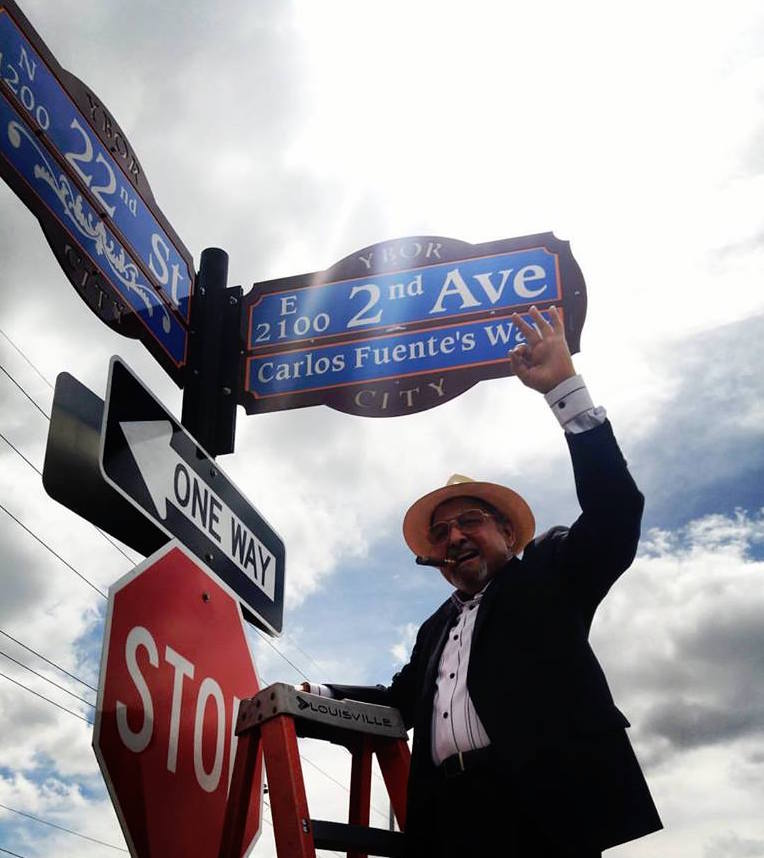
[themify_box style=”light-yellow” ]
- Cigar Industry Pays Respects to a True Industry Icon
[/themify_box]
The entire cigar industry mourned the passing of the patriarch of the Fuente family, Carlos Fuente Sr. He was 81 years old.
Known as “Don Carlos”, Fuente Sr.took the Arturo Fuente cigars, his father’s small family run operation in Tampa Florida and transformed it to one of the largest family-owned cigar companies in the world.
It was only six months earlier where Fuente Sr. took to a ladder when Ybor City honored him with his own street. Fuente’s passing came on the eve of the U.S. Food and Drug Administration regulations on premium cigars went into effect.
Following his passing, tributes flowed in throughout the whole cigar industry and many of the industry leaders gathered in Tampa for his funeral.
[themify_box style=”light-green” ]
Editor’s Comments
We throw the word icon and legend around a lot – this man was truly both of those things. He will sorely be missed, but his legacy lives on.
[/themify_box]
11-On the Move
[themify_box style=”light-yellow” ]
- Plenty of People on the Move in 2016
- General Cigar Sees Big Changes
- Two Company Owners Leave Their Own Companies
[/themify_box]
2016 saw many industry people depart of change jobs. These changes happened at all levels – everywhere from smaller boutiques to the larger corporate entities.
Perhaps the most activity took place at General Cigar company in where two executives, Creative Director Michael Giannini and Vice President of Marketing Alan Willner left the company. In addition Sam Leccia and General parted ways after a 16 month run, while the Jack Torano joined the company becoming reunited with the brand that was once a part of his family.
- Michael Giannini Departs General Cigar
- Alan Willner Departs General Cigar
- Sam Leccia Announces Split from General Cigar Company, Launches establishes distribution through online store
- Jack Torano Departs Duran Cigars, returns to Torano Cigars
- Justin Andrews Named Brand Manager at Foundry Tobacco Company
- Dan Carr Named President of ITG Brands
- Jose Blanco Steps Away from Las Cumbres Tabaco, Named Senior Vice President at E.P. Carrillo
- Patrick Vivalo Departs Vivalo Cigars
- Michael Cellucci Departs Drew Estate; Glenn Wolfson Named New CEO
- Heinrich Villiger Steps Down as CEO of Villiger Söhne AG, Robert Suter Named New CEO
- Villiger Cigars North America Names Rene Castaneda President
- Ricky Somoza Named U.S. Director of Operations at A.J. Fernandez Cigars, then departs before end of year.
- Steve Ysidron Named CEO for Kuuts LLC
- Larry Palombo Departs Altadis USA
- Hector Alfonso Sr. Named Director of Operations and Erik Espinosa Jr Named Vice President at Espinosa Cigars
- Gabriel Alvarez Departs Maya Selva Cigars, joins Casa Cuevas Cigars
- Jason Lois Departs Crossfire Cigars
- John Gonzalez Named Vice President of Sales at Gran Habano
- Derek Matthews Named National Sales Manager at Black Label Trading Company
- Eddy Guerra Named Director of Marketing at Gurkha Cigars
- Rick Ardito Executive Brand Manager for The Upsetters at Foundation Cigar Company.
- Rob Rasmussen named Brand Manager of Mombacho Cigars SA
- Eddie Ortega splits from Quality Importers
[themify_box style=”light-green” ]
Editor’s Comments
While some of these changes were part of the normal attrition seen by the cigar industry, there was no question (as we saw with Jose Blanco and Patrick Vivalo essentially leaving their own companies) that many of these moves were driven by the new FDA regulations going into effect.
FDA-aside, my question is – “does anyone ever get fired in the cigar industry?”
[/themify_box]
12-Relations with Cuba
[themify_box style=”light-yellow” ]
- Obama Further Eases Cuba Restrictions
- Questions on How Trump Administration will handle Cuba
- Fidel Castro Passes Away
[/themify_box]
Several stories in terms relating U.S.- Cuba relations and what it means to the cigar industry surfaced this year.
The big story was the Obama Administration taking further steps to open trade up between the U.S. and Cuba. One of those steps was ending the restrictions and limits on purchasing Cuban goods abroad. This means that a U.S. traveler going overseas does not have a limit on the amount of Cuban cigars (or rum) that can be brought into the U.S. (subject to the normal duty fees). The U.S. embargo with Cuba still remains in place as that takes an act of Congress to repeal. This also means Cuban product can not be sold in the U.S. and cannot be purchased via mail order.
These recent actions by President Obama have resulted in a negative reaction by many cigar manufacturers, brand owners, and retailers who feel the while they are being subject to FDA regulations, a path is being carved out for product not being regulated by the industry to enter the U.S. market.
The new incoming President, Donald Trump has stated he is looking for more from Cuba before continuing down the road of re-estabashing diplomatic relations and potentially ending the embargo. Obama’s easing of restrictions have been done by Executive Order. Trump has been on the record stating he would roll back many of the Executive actions made by President Obama. This could include some of the easing of the restrictions with Cuba. Trump has also hired Pro-Embargo advocate Mauricio Claver-Carone to the transition team.
Finally, this past Thanksgiving weekend, former Cuban President Fidel Castro died. While it is 57 years since the Cuban revolution, Castro’s death still hits home to many in the cigar industry, which was nationalized. Many who are a part of the Cigar industry today had fled Cuba following the revolution, or had parents and /or family impacted by the revolution. Once word of Castro’s death surfaced, it set off a series of overnight celebrations in Little Havana.
This author had the opportunity to visit Cuba. There are two stories from this trip:
[themify_box style=”light-green” ]
Editor’s Comments
My gut tells me things will slow down with restoring full relations with Cuba as opposed to going backwards. I don’t see the embargo getting lifted anytime sooner. The hiring of Claver-Carone as part of the transition team could be a big indicator of things to come.
As for retailers and cigar manufacturers being upset at the current situation, my advice to them is to not underestimate their own abilities. There are some very creative minds in the U.S. cigar market – and I think all will be fine. I’d be more worried the day the embargo lifts and consumers can purchase Cuban cigars online when they are not yet in the brick and mortar shops.
[/themify_box]
Photo Credits: Cigar Coop, except where noted


